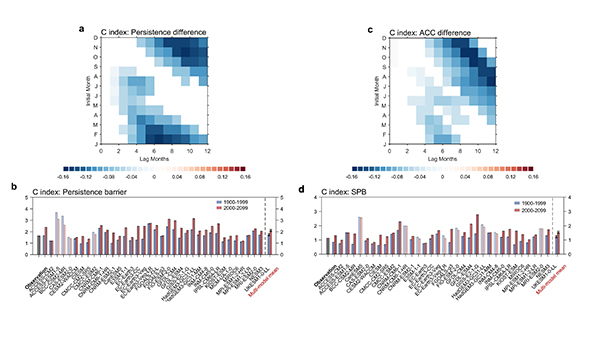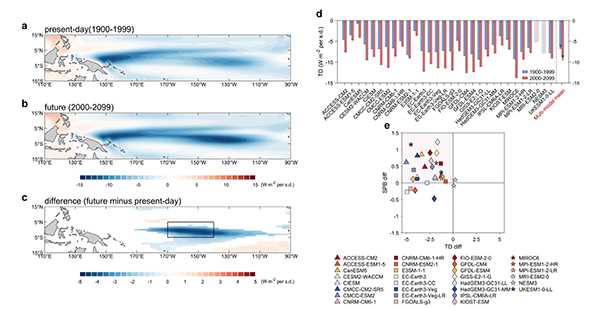A team from OUC’s Frontiers Science Center for Deep Ocean Multispheres and Earth System and Physical Oceanography Laboratory (POL) made new progress in ENSO predictability. The research showed that the spring forecast barrier of Central-Pacific (CP)-type ENSO has been strengthened and the predictability has been reduced because of global warming, and it also elucidated the underlying physical mechanism. The outcome entitled “Central-Pacific El Niño-Southern Oscillation less predictable under greenhouse warming” was published in Nature Communications.

The impact of global warming on climate is one of the frontier scientific issues in climate change research. Global warming significantly affects the background state of air-sea system and the occurrence frequency and amplitude of ENSO. The changes of these factors may have an impact on the spring forecasting obstacles of ENSO. There is still a paucity of academic research on the response of ENSO spring forecast barriers under global warming, and future changes in ENSO spring forecast barriers may bring more uncertainty in ENSO predictability.

The team found that both the spring sustainability barrier and the forecast barrier of CP-type ENSO are significantly strengthened under future global warming scenarios, whereas EP-type (eastern Pacific) ENSO does not have a significant change. The main reason for the enhanced forecast barriers for future CP-type ENSO is the enhanced decay rate. Through the calculation of positive and negative feedback processes associated with the ENSO decay rate, the team found that the main cause of the future enhancement of the ENSO decay rate is the enhancement of the negative feedback of the thermal decay. This process enhances the CP-type ENSO spring forecasting barrier and makes forecast in the future more difficult.

The research analyzes and elucidates the response characteristics and physical mechanism of the spring forecast barrier in the context of global warming. It contributes to a deeper understanding of the impact of future global warming on the predictability of ENSO.